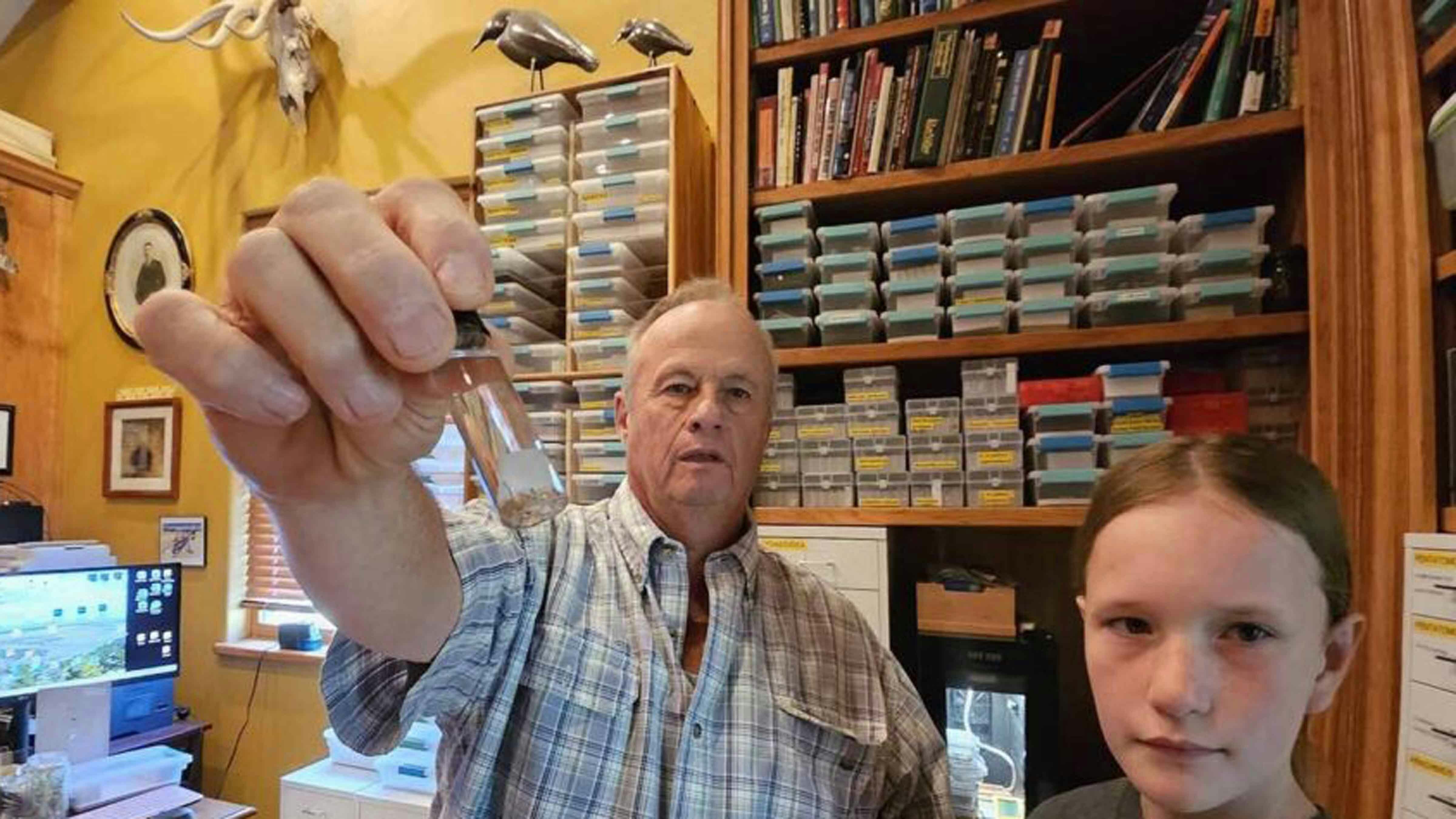That narrow cloud you might see funneling its way to the ground this time of year might not be a tornado. It could be an ordinary scud cloud, which looks a lot like a tornado.
AccuWeather posted a video of a “white tornado” spotted in Maryland on May 5. The agency classified it as a “scud vacuum,” a tubular cloud of condensation that can form during thunderstorms.
Cowboy State Daily meteorologist Don Day said scud clouds don’t suck, which is why that description is inaccurate.
“Using the word ‘vacuum’ isn't a good way to describe scud clouds, because there's really no sucking going on,” he said.
One telltale sign you’re looking at a scud and not a funnel cloud is that a scud won’t have an organized rotation pattern to it. It also may not look as intact, with pieces of cloud coming off it.
Scuddy Skies
Scuds are another name for pannus clouds. They’re essentially a single cloud underneath a larger high cloud that forms low to the ground during a thunderstorm.
“When you get into a thunderstorm situation, there’s a lot going on at the base of those clouds,” Day said. “You can get these little vortices that will spin off the base of a cloud and take a piece of cloud with it. Scud clouds are basically pieces that have broken off larger clouds.”
Scuds form low to the ground, can look very dark and tend not to last long. They can even start spinning, which gives them a scary resemblance to a tornado.
Day said scuds can form during tornado events, but that doesn’t mean they’re indicators of an imminent tornado. They form directly from the updrafts and downdrafts created by thunderstorms in a moisture-rich atmosphere.
“You're going to get scud in a thunderstorm environment or a really strong cold front when there's a lot of turbulence and moisture in the air,” he said. “You can have scud in an environment where there could be or may have been a tornado, but it doesn’t mean there’s a tornado coming.”
The American Meteorological Society said scuds may be formed by the breakup of raindrops in a pocket of high humidity or the evaporation of water on the ground that gets incorporated into the low-hanging cloud. It's complicated.
Conditions inside a scud are similar to those in the thunderstorm they break off from. Although technically benign, heavy rain, strong winds and hail are all on the table in a scud.
“When you have a scud situation, you've got a lot of weather happening,” Day said.
Wyoming Scuds
Scuds can form anywhere in Wyoming, but they’re not as common as they would be in Maryland. That’s primarily because thunderstorms aren’t as common in Wyoming’s high-elevation, arid climate.
“You have to have a good amount of moisture in the atmosphere to get scud clouds,” Day said. “We only get humidity that high during severe thunderstorms, and that’s when I’ve seen scud clouds in Wyoming.”
Technically, the cloud captured in Maryland wasn’t a full-fledged scud either. The thick, white cloud was more likely a vertical fog bank that storm chasers call “scud vacuums” despite definitely not sucking.
If a scud, cloud or vacuum starts sucking more than moisture from the ground, it would be a tornado. And in that case, there’s nothing to do but run.
Seeing Scuds Soon?
Wyoming is still in its wet season. March, April and May are when Wyoming gets most of its precipitation, and there’s plenty more on the horizon.
We might be past Mother’s Day, but there was a Winter Weather Advisory for the Beartooth Highway on Tuesday and Wednesday, and overnight snow is expected in Yellowstone National Park. Day said the latest spell of 80-degree days across Wyoming could end this weekend.
“We’ve got two systems coming in this week,” Day said. “The first is going to lead to Winter Storm Warnings in the Beartooth, Bighorn, and Absaroka Ranges that’ll cool things off significantly. The next system moves in on Sunday, and I wouldn’t be surprised if we see snow get pretty low.”
It’s too early to say how low the snow will go or how widespread it will be, but there’s the possibility that it’ll lead to thunderstorms across the Cowboy State. And where there’s thunder, there could be scuds.
For the record, there’s no explanation why they’re called scuds, but Day has a theory.
“Saying scud is easier than saying pannus fractus cloud,” he said. “I think it sounds like a Scud missile, but there’s no connection between the two.”
Andrew Rossi can be reached at arossi@cowboystatedaily.com.





